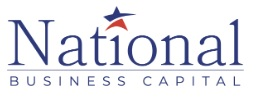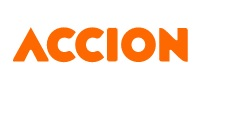Starting a business is often very challenging, and in a startup, most of the time it is that one person (usually the founder) who has to wear many hats. He is the marketer, accountant, technology officer, basically every designation that one can think of.
And of course, in order to run a business, you would need access to funds and loans, but when you are a startup yourself, you can hardly expect to fetch loan payments, and you might be dead worried thinking whether or not you would get a business loan. Well, in that case, we have news for you. What if we tell you that it is very much possible for startups and small and medium-sized businesses to fetch funds for themselves?
Sure, we will take you there, and through this article, we aim to acquaint all startups with the kind of business loans they can get for themselves.
More when you scroll down.
Kinds of Business Loans Available
Table of Contents
Limited funds may not get you to fetch a traditional business loan, but that shouldn’t be a reason to worry, as there are a lot of financial solutions out there in the market that can be of immense help even if your bank account isn’t that hefty.
Now, let’s get to learn about them in detail.
1. Credit Cards For Businesses
You can always boost your credit score while using a business credit card, and this can also help you to be qualified for myriad business loans in the near future, and of course, it goes without saying that you have to use it responsibly.
For those using credit cards, cash flow is of utmost importance, and there are many startup founders who end up caring more about how credit-worthy they are personally. In order to qualify for business credit cards, startups would need to have a personal credit score that is above average, usually, a FICO score above 690 should be decent in order to qualify for business credit cards. Remember, this is especially beneficial for those startups that have little or almost no revenue.

2. Equipment Financing
Equipment financing operates in a little different way as compared to the usual conventional term loans. In this case, it is the lender who lends you some cash which could fund up to around 100% of the purchase of equipment, where the collateral is the equipment.
In case of equipment financing, lenders mostly care about the equipment’s value. Equipment financing is mostly calculated on the basis of the credit score, which determines whether a startup gets a loan or not.
3. Invoice Financing
When a business’s unpaid invoices are being used, it is called Invoice financing. After this, the invoice financing companies will take a percentage of the invoices that are unpaid. Most businesses that have a limited cash flow can opt for this kind of financing.

4. Microloans
As the name signifies, there are loans that are quite smaller in size, where the amount ranges up to $50,000 or even less. These kinds of loans are mostly given by nonprofit organizations and organizations that function on a particular mission. These kinds of loans mostly cater to communities that are a little backward than the others.
How Can Startups Manage to Get Small Business Loans With no Revenue?
Most startups and small businesses might be in need of money for various reasons. However, they (startups and small businesses) must realize that people or organizations lending the money need capital as well. This indicates the fact that startups must have enough revenue so that this gives a confidence boost to the lenders when they are lending in their money.
Here are some of the ways in which startups can fetch small business loans with no revenue:
1. They Need to Assess Their Assets
Startups must bear in mind that every lender who is lending their money is actually taking a risk. To ease things up lenders must be given the assurance that the borrower, in this case, the startup is capable of repaying the full amount.
Mostly, before making an investment lenders want to check if the startup where they are investing is generating any kind of revenue or not, and in case, a startup isn’t making much revenue, then a startup can devise a strategy around how it can contribute positively, like for example, by collateral or alternatively, startups can also showcase their personal credit score, so that the lender doesn’t feel like he is making a wrong investment.
2. Understand the Requirement of the Lender
In business, there are often some lenders who want that their borrowers must have a certain amount of money already in their business bank accounts, and it is only after they cross-check with the business bank account will they consider giving a loan.
However, having said that there are some other lenders who are quite lenient in their approach, but they ensure that the startups they are investing in have robust creditworthiness and also meet certain other requirements, which vary from lender to lender.
So, it is always advisable that startups know exactly the requirements of the lender before they consider asking for loans.
3. Analyze if You Can Repay
If a startup has a low bank balance then there are greater chances of risks. Most lenders often are in favor of withdrawing automatically. Suppose, as a startup business, you have a requirement of $500, but your business bank account only has $1500, in that case, many lenders will probably shy away from making their payments.
4. Calculate Your Risks
It goes without saying that each time there is a loan term associated, there are chances of risks being involved. That means that riskier loans might be associated with a higher payment frequency and a much shorter repayment period.
Therefore, as a startup, it is always advisable to be absolutely confident when they approach an investor they have to be absolutely sure that they will be able to pay back their lenders, and this is the level of risk that always has to be calculated.
The 10 Best Business Loans For Startups With Bad Credit Scores
It is mostly said that a poor credit score can be a huge barrier when one wants to get a business loan and let’s face the reality – the process of getting a startup business loan, and especially when one has a poor credit score can be increasingly difficult.
But that doesn’t mean that all is doomed for startup business owners. Of course, there are ways that could help you finance your business venture. Below we have compiled a list of business loans that are available and suitable for those kinds of entrepreneurs who do not have a good credit score but want to thrive in their business operations.
1. National Business Capital

The National Business Capital is a marketplace which operates online, one that has more than 75 lenders and has a business model where the borrowers who are interested get to choose and pick from a plethora of business financing, and this includes traditional small business loans, lines of credit, equipment financing loan, and also SBA loans.
Here, the rates can often tilt towards the higher side, but this type of loan is quite easy to access, and almost anyone can qualify for this loan, and that includes startups who have bad credit scores.
Also, those startups that do not have good credit would probably have a good time getting themselves qualified for this loan. This is majorly because the National Business Capital doesn’t have a very high credit qualification for startups to get financed.
Now, those applicants who have a score that is above 650 can qualify for this loan, this is even if they have not been old players in business or haven’t made great sales. Another significant factor is that the National Business Capital will also finance businesses and those startups that sell cannabis and if they have been in operation for at least a year.
2. Lendio

Lendio is almost like an online match-making service that allows a business to compare and also enables them to apply to various business loans within a quick span of 15 minutes, and they can fetch funding within a day. One of the specialities of Lendio is that they do not state any particular requirements of borrowers, which is perhaps why there are so many lenders on this platform who are ready to work with startups despite their poor credit scores.
Startups can use Lendio in order to get themselves pre-qualified for equipment financing, merchant cash advances (MCA), short-term loans, lines of credit, Small Business loans, and a lot more.
This platform is quite beneficial if as a startup you are new in this business field and are not too sure of which options you might require for your business. As a platform, Lendio is quite good for equipment financing, this is because Lendio makes it quite easy to apply to various equipment financing companies, even those which have bad credit since they have been operational for a short time.
As of now, there are around 75 lenders on the platform, and some of the big names are Kabbage Funding, OnDeck, Amex and BlueVine. Even though any kind of business can apply for Lendio, however, it is better to have a credit score above 550, with a business being in operation for at least six months, and making at least $10k a year.
3. Upstart

There are several startups that get funding for their startup from personal loans, and a platform providing a similar function is Upstart which is a lending platform that collaborates with banks which provides personal loans that range from $1,000 to $50,000. But, a startup needs to have at least a minimum of 580 as a credit score in order to be accepted on the platform.
In order to make a lending decision, Upwork makes use of education, employment and different other variables. This opens up the door for college graduates and other individuals who have an added advantage while they apply.
The tenure of such loans usually ranges from three to five years, and startup businesses mostly receive the funds by the following day in their business bank accounts.
4. Fundbox

This is mostly suitable for those startup businesses that are new in business and operate with sub-prime credit which includes lines of credit and term loans. However, it is very important to note that these kinds of loans would not be of much use if as a startup your credit has been entirely trashed or you are not making money in your business yet.
In order to avail of this loan, startups must be operational at least for six months and bring in some revenue. The best thing about this loan is that most businesses would receive a funding decision within a few minutes of submitting the application and funds often arrive the next (business) day.
It is advisable to have a minimum credit score of 600, and people have to pay back quite quickly, which is usually within 12 or 24 weeks, and a startup business can borrow up to the maximum amount of $150k.
5. BlueVine

BlueVine is one of the most famous online lenders in the business lending space. Startups can fetch small business lines of credit which can go up to $250,000. One of the main reasons for BlueVine to get famous is because they have terms which are quite fair and transparent, and the application process is also quite easy.
As a startup and in order to apply, a business needs to share a connection with the bank and also some details about their business which is actually pretty basic. BlueVine allows businesses to withdraw their funds at any time, and a startup’s credit line is replenished as they repay what they have borrowed.
As a startup, if you have to qualify for this loan, you will need to have a credit score of 600 and be in business at least for the last six months. Regarding, lines of credit startups will need a credit score of 600. Apart from their loan services BlueVine also offers a Bill Pay service in which businesses can pay their vendors using a credit card.
6. Credibly

Using Credibly, a startup can generate different kinds of short-term loans, like that of merchant cash advances and working capital loans up to an amount of $400K, business lines of credit up to $250K and a lot more. One of their unique qualities is that they accept startups that have a poor credit score as well.
Their minimum required credit score is 500, and often times it varies as per the product. Along with this, one of their key requirements of theirs is that a startup needs to bring in around $15K a month, in order to be qualified for this scheme.
7. Avant

Avant has earned quite a repute for itself as a renowned provider of small personal installment loans that range from $2K to $35K, and this can be used for businesses as it comes in quite handy when it things come to dealing with the expenses in a startup. Talking of credit scores, Avant accepts credit scores which are at around 580.
As a platform they also accept sub-prime credit borrowers, however, there are chances of funding getting denied for several reasons like inadequate personal income. Their interest rates can range from somewhere within 9.95% to 35.99, which is actually a little on the higher side.
8. PayPal Working Capital

As a startup, if you are looking for short-term loans that almost function like merchant cash advances, then you can think of PayPal Working Capital. They do not have a credit score requirement as such and are quite good and reliable if you consider conducting your business using PayPal.
PayPal Working Capital does not charge any kind of interest, and all you have to do is just pay a one-time fee which you can just pay as you consider repaying. PayPal also will take a small percentage of your daily sales until you repay the loan.
You can easily access the application if you have a PayPal account and the good news is that PayPal does not check your credit, and dispatching a loan to you is just dependent on your sales on PayPal.
9. Accion

Accion is a non-profit organization that provides short-term and medium term instalment loans to different startups and other businesses. Talking of loans their services range from mostly micro loans which are under $50K, but there are some options where they offer a large number of loans which can go up to $1 million. They mostly deal with businesses which are minority or women-owned.
This is especially suitable for those businesses which have poor personal credit but require a small startup loan. In order to apply for this process, you will need a credit score of 575, and sufficient cash flow that can help you repay the loan. Also, as a startup, you need to have less than $3K in outstanding debt, and a robust business plan with a solid cash flow.
10 Kiva

A non-profit organization, Kiva US is one which is especially designed to help small businesses succeed in their communities that have interest-free financing. As an organization, Kiva helps small, crowdfunded loans to all entrepreneurs across the globe. Kiva US is designed for US-based businesses specifically.
One of the greatest advantages of Kiva is that they have no credit checks, but these loans are quite small, but they offer loans which can go up to $15,000, and it caters to startups that have been in business for at least a year, and they are eligible for a $1,000 loan.
Other Alternative Lenders
There are several alternative options available for those startups who do not wish to opt for the traditional lending way along with the ones mentioned at the beginning of the article. Here are some of the ways that are being followed by the startups these days, apart from the different ways that we already enlisted previously.
1. Using Corporate Cards
For those businesses which are newly registered as corporations, there is a facility of a corporate card that is mostly used for business expenses. The advantage here is that if you are applying as a corporation, usually the card issuer will not be checking your personal credit history. You would need to have a high balance in your corporate bank account.
2. Using Business Grants
Business grants are one of the best ways of fetching funding for a startup, as the grant money that you receive doesn’t need to be repaid. There are different government and private organizations that provide business grants, and they are quite easy to get if you align with their criteria.
3. Using Crowdfunding
We did make a mention of Kiva in the previous paragraphs and there are several other crowdfunding platforms that help businesses, and as a business, you will have to check from your end which crowdfunding platform suits you the best.
There are some startups that choose to wait before for getting a business loan, however, that is not a very practical solution. If you are a startup that is functioning without any revenue, you can convince others to invest in your product/idea. And, if you are a well-established startup then you must by all means you must opt for a business grant.
Additionally, you must make sure that you have a lot of savings and always keep a tab on which areas you could cut down on your costs, without making major changes in your company and you will be surprised to know how well you can manage just by making a few operational changes. And, of course, it is very important to operate under a budget, as being a new player in the market you wouldn’t want to spend on things unnecessarily.
Frequently Asked Questions (FAQs)
1. Can I still get a business loan if I have a bad credit score?
The simple answer is yes. There are several options for those businesses that have bad credit. These are certain lenders who choose to look at the revenue of a startup and its other available assets and check whether these could be used to tap for liquidity or even as collateral.
2. I have a credit score of 500. Am I still eligible for a business loan?
Well, let’s say that it is difficult but still possible. Actually, we had enlisted the names of some borrowers who don’t mind lending money with a credit score of 500. There are other lenders who provide loans sometimes in the form of merchant cash advances and accounts receivable factoring.
3. I need a bad credit startup loan. Would I be needing collateral?
In most cases, bad credit startup loans do not require a business to put across any specific collateral or any kind of business assets. But, if you are talking from the point of view of online startup loans, mostly they require a UCC-1 blanket lien along with a personal guarantee.
The use of the blanket lien is to cover a startup’s business asset altogether. This means that the lender has the authority to seize whatever business assets a startup has if in any case, you cannot afford to pay the loan.
Thus, for lenders, a personal guarantee comes in quite handy as it is the responsibility of the business taking the loan to repay the loan, even if your business ceases operations and you have to shut shops.

